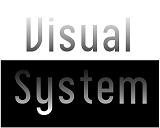Contracts and Confidentiality Agreements: An Overview for Writers and Editors
As a writer or editor, you`re probably familiar with the basics of contracts and confidentiality agreements – but do you know how to navigate these legal documents effectively? Whether you`re working with a client or an employer, understanding the ins and outs of contracts and confidentiality agreements is essential for protecting yourself and your work.
What is a Contract?
A contract is a legally binding document that outlines the terms of an agreement between two or more parties. In the world of writing and editing, contracts are often used to establish the scope of work, payment and deadlines for a project. They can also outline ownership of intellectual property and other legal concerns.
When drafting or reviewing a contract, it`s important to carefully review the terms and negotiate any changes that could impact your work or financial compensation. Consider consulting with a lawyer or other legal expert to ensure that the contract is fair and protects your interests.
What is a Confidentiality Agreement?
Confidentiality agreements, also known as non-disclosure agreements (NDAs), are legal documents that establish confidentiality between two or more parties. NDAs are often used in the world of writing and editing to protect ideas, trade secrets, and other proprietary information.
As a writer or editor, you may be asked to sign an NDA before starting work on a project. It`s important to carefully review the terms of the agreement and understand what information you are agreeing to keep confidential. You should also be aware of any exceptions to the confidentiality agreement and clarify any questions or concerns with the other party.
Tips for Working with Contracts and Confidentiality Agreements
Here are a few tips to keep in mind when working with contracts and confidentiality agreements:
1. Read and understand the terms of the agreement before signing.
2. Consider consulting with a legal expert to ensure that the contract or NDA is fair and protects your interests.
3. Negotiate any changes to the agreement that could impact your work or financial compensation.
4. Keep a copy of the agreement for your records.
5. Follow the terms of the agreement carefully, including any confidentiality obligations.
Contracts and confidentiality agreements are essential tools for protecting your work and interests as a writer or editor. By understanding the terms of these legal documents and following best practices, you can ensure that your work is protected and that you are fairly compensated for your efforts.
